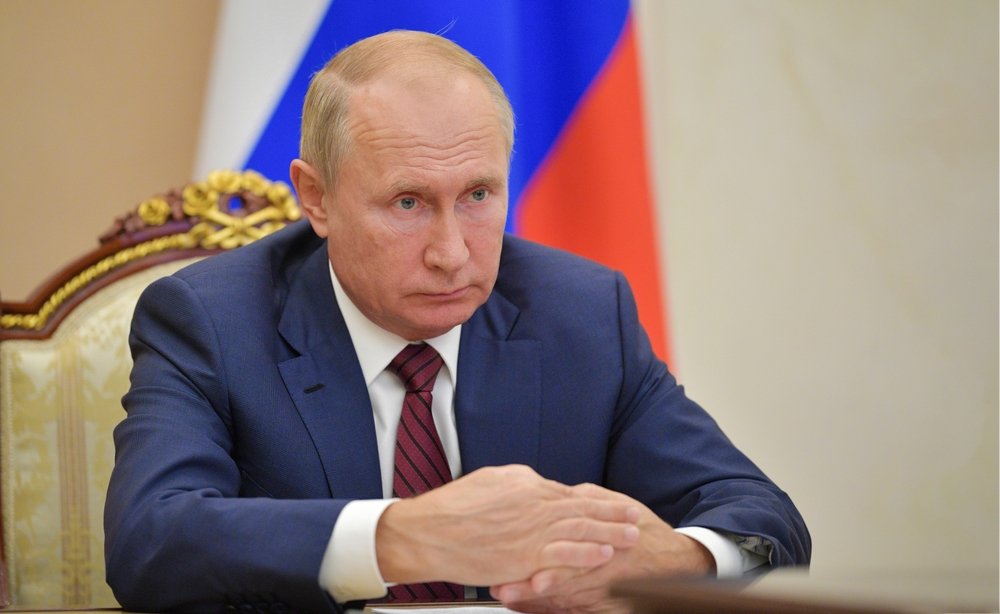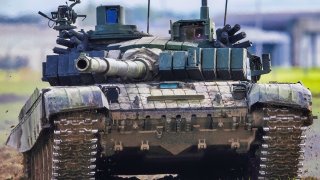When Will Russia Finally Collapse?
Russia’s genocidal war against Ukraine could be the spark that makes a collapse possible. The regime, army, and economy have weakened, and there is no reason to expect things to improve anytime soon in Moscow.
When will Russia finally collapse? - Policymakers and analysts are getting impatient.
Predictions of Russia’s collapse appear to be wrong.
Instead of getting weaker, Vladimir Putin’s realm seems to be getting stronger.
One critic of the collapse argument puts it this way: “[T]wo years on, Russia looks in alarmingly robust condition.”
If that’s true, it obviously makes sense to negotiate with the Kremlin now, before it gets even more powerful and more stable. That may be a bitter pill to swallow, for Ukraine and its supporters of course, but what’s the alternative?
When Will Russia Collapse?
The alternative is obvious. In fact, Russia is not getting structurally stronger and more stable, and almost all theories of system breakdown lead us to expect something deeply destabilizing to happen in Russia. When? There’s the rub. It could be tomorrow; it could be five years from now. Either way, collapse is coming, though perhaps not “two years on.”
The case for Russia’s getting stronger rests on peculiar interpretations of the existing evidence regarding the Putin regime, the war, the economy, and the Russian population.
Putin may be exuding confidence—though why should we expect anything less from him or any leader?—but appearances can be deceiving, especially as Putin’s public persona is as often inclined to cluelessness as to self-confidence. He’s arrested his liberal and right-wing critics and built up the security apparatus, and his propaganda machine remains as active as ever. Are these signs of strength?
Yes, for obvious reasons, and no, because all these measures wouldn’t be necessary if he didn’t feel threatened. By whom? By important political and economic elites, who are unhappy with the war and its effects on the Russian economy and armed forces. The Prigozhin coup attempt is a case in point. Its very occurrence testified to dissatisfaction within the army. More importantly, the attempt could not possibly have been made without the knowledge—and blessing?—of the security services.
So, yes, Putin survived the coup. But its very happening means that his position was and is precarious.
Putin's Weakness Is Russia's Weakness
That’s important because Putin’s weakness means his regime’s weakness, since he’s its essential core. All authoritarian, totalitarian, fascist, and dictatorial systems are hyper-centralized by definition. That can be their strength, if the supreme leader is a Platonic philosopher king, but more often than not it’s a fatal weakness. Supreme leaders are resistant to change and reform.
Their centrality encourages buck-passing, attempts at local power-building, and sycophancy. Most important perhaps, they are prone to strategic mistakes, especially as they age and lose their ability to project invincibility, infallibility, and charisma.
Putin’s most significant error was to pressure Ukrainian President Viktor Yanukovych to back out of an Association agreement with the European Union in late 2013, thereby sparking the Revolution of Dignity that led to Yanukovych’s flight and then the launch of a full-scale invasion of Ukraine in February 2022.

The Jamestown Foundation's Janusz Bugajski makes the case for viewing the war as disastrous for Russia: “Russian leaders are trying to convince Western leaders that Ukraine is losing the war in order to terminate military assistance for Kyiv. In reality, the war is disastrous for Russia. Although the Ukrainian counteroffensive stalled in Donbas and Zaporizhzhia for the winter, after defeating Russian forces in Kyiv, Kharkiv, and Kherson, the Russian army is being decimated, and its navy has been pushed back from the western part of the Black Sea. During two years of combat, Russia has lost at least 315,000 killed or severely wounded, from a ground force of some 360,000 that invaded Ukraine. It has also sustained huge losses in equipment, including 2,200 out of some 3,500 tanks and a third of its armored vehicles.” These are not just incidental problems. Together, they bespeak a fundamental, structural decimation of Russia’s armed forces.
The situation with the economy is just as alarming. The opposition Russian economist Vladimir Milov has shown that the state has invested enormously in four sectors (ammunition, railroads, military security, and machine building) directly connected to the war, while reducing or only minimally increasing investments in consumer goods sectors. Putin’s claims that GDP is growing and inflation is low, therefore, conceal the reality that average citizens are being sacrificed on the altar of militarism. As Milov points out, “Russians have become significantly poorer in the last five and especially in the last two years.”
The Empirical Case for a Strong Russia Is Weak
Yale University’s Jeffrey Sonnenfeld and his colleagues have convincingly shown that sanctions have worked and that “[R]ussia is no longer remotely an economic power and has suppressed the minimum reporting of transparent national income statistics that is required to retain IMF membership. With industrial might below that of Chile, Putin’s Russia survives merely by seizing assets. The increasingly state-dominated economy is cannibalizing its own companies to maintain Putin’s war machine.”
Finally, we come to the Russian population. Yes, they’re inactive, and yes, that makes them morally complicit in Putin’s crimes. But a significant minority, perhaps as many as one fifth, oppose the war and Putin’s fascist regime. They are largely urban, educated professionals resident in Moscow and St. Petersburg. At present, they’re cowed. But as soon as an opening appears, as it inevitably will, they will make themselves heard—as do all urban, educated professionals the world over.
The empirical case for a strong Russia is thus weak. Meanwhile, the theoretical case for collapse is strong, because Russia is exceedingly vulnerable to the structural forces that generally lead to systemic collapse. It’s important to remember that structures are like tectonic plates. We can predict that earthquakes will inevitably happen where two plates meet, but we cannot say exactly when. And we can say which regions—or states—are in greater or lesser degrees of trouble and increasingly face the prospect of collapse.
What are the structural forces besetting Russia?
The above analysis identified them. The brittle regime is one. The parlous condition of the military is another. The sinking economy is a third. The protest potential of Russia’s educated, urban elites is a fourth. We know from history that such states are prone to break down or, at the least, to experience massive popular protests and regime change. The Soviet Union and its East European satellites in 1989-1991 immediately come to mind.
But so, too, do scores of countries worldwide—such as Argentina, Nicaragua, Egypt, Syria, Zimbabwe, and Libya. Some states, such as the Ayatollahs’ Iran, weather the storms of repeated upheaval and survive. Others, such as the Shah’s Iran, do not. Besides invoking platitudes such as “it all depends on state strength or elite cleverness,” we cannot know what the exact outcome will be.
But we do know that, in most cases, the “contradictions” that structural forces produce come to the fore when “sparks” or “triggers” take place. These can be assassinations, earthquakes, fires, natural disasters—or wars, especially unsuccessful wars that strain already impaired economies, militaries, regimes, and populations. It was World War I that destroyed the Habsburg, Ottoman, and Russian empires and World War II that almost destroyed the Soviet Union, especially after Joseph Stalin’s massive structural changes weakened the Soviet system and made it prone to collapse.
Russia’s genocidal war against Ukraine is probably just such a spark. The regime, army, and economy have gotten weaker, and there is no reason to expect things to get better anytime soon. This means that, the longer the war takes, the likelier the structural forces will grind against one another, the greater the contradictions, and the likelier Russia’s breakdown becomes. Contrary to much conventional wisdom, in Russia and the West, time is not on Putin’s side. He’s not getting any younger, and his regime is not getting any stronger. The West should therefore refrain from negotiating with Putin until his country and regime weaken beyond easy repair.
So, don’t be taken in by his forced bravado. The tune he’s singing is his swan song. As to when Putin Russia will meet its end, it may be sooner than you think. Indeed, consider holding your breath.
About the Author: Dr. Alexander Motyl
Dr. Alexander Motyl is a professor of political science at Rutgers-Newark. A specialist on Ukraine, Russia, and the USSR, and on nationalism, revolutions, empires, and theory, he is the author of 10 books of nonfiction, including Pidsumky imperii (2009); Puti imperii (2004); Imperial Ends: The Decay, Collapse, and Revival of Empires (2001); Revolutions, Nations, Empires: Conceptual Limits and Theoretical Possibilities (1999); Dilemmas of Independence: Ukraine after Totalitarianism (1993); and The Turn to the Right: The Ideological Origins and Development of Ukrainian Nationalism, 1919–1929 (1980); the editor of 15 volumes, including The Encyclopedia of Nationalism (2000) and The Holodomor Reader (2012); and a contributor of dozens of articles to academic and policy journals, newspaper op-ed pages, and magazines. He also has a weekly blog, “Ukraine’s Orange Blues.”
All images are Shutterstock.


